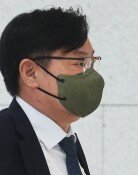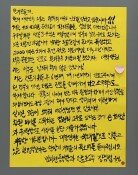Cluster infection triggered by Itaewon-clubbers is confirmed over weekend
Cluster infection triggered by Itaewon-clubbers is confirmed over weekend
Posted May. 18, 2020 07:39,
Updated May. 18, 2020 07:39
The second case of COVID-19 cluster infection has been reported in South Korea since a mass infection was confirmed at clubs around the Itaewon area, central Seoul. To everyone’s relief, any explosive increase in the number of confirmed cases did not occur over the weekend.
As of Sunday noon, 168 newly confirmed cases turned out to be associated with the mass infection at clubs in Itaewon according to the Central Disaster and Safety Countermeasures Headquarters (CDSCHQ) and the Seoul Metropolitan Government. Thirteen new cases were added to the total number of COVID-19 patients over the weekend, said the CDSCHQ. Unlike the mass transmission triggered late in February by the religious sect Shincheonji, no sign of the uncontrollable spread of the virus has been witnessed since the first Itaewon-related case was confirmed in Yongin City, Gyeonggi Province, more than 15 days ago. Overall, just fewer than 20 cases were newly confirmed across the nation over the weekend.
Nevertheless, risks still remain regarding indirect transmissions even though some say that South Korea has passed a turning point. Another case of club-linked quaternary infection was newly reported in Nowon district, northern Seoul, following a prison officer believed to be the first quaternary infection case. Meanwhile, three new cases were added in Cheongju, North Chungcheong Province, and Daegu, North Gyeongsang Province, the infection path of which has not been identified yet.
As of now, the Korean government plans to start school for high school seniors on Wednesday and for other grade levels later. “High school seniors will return to school just as planned unless the situation worsens,” said South Korean Prime Minister Chung Sye-kyun. Starting from Monday, the South Korean government intends to carry out COVID-19 diagnosis tests on around 6,300 military enlistees over the next eight weeks.
Mee-Jee Lee image@donga.com
Headline News
- Med professors announce intention to leave hospitals starting Thursday
- Bridge honoring Sgt. Moon Jae-sik unveiled in Pennsylvania
- Chief of Staff Chung tells presidential secretaries to stay away from politics
- US FTC bans noncompete agreements
- N. Korea launches cyberattacks on S. Korea's defense companies







